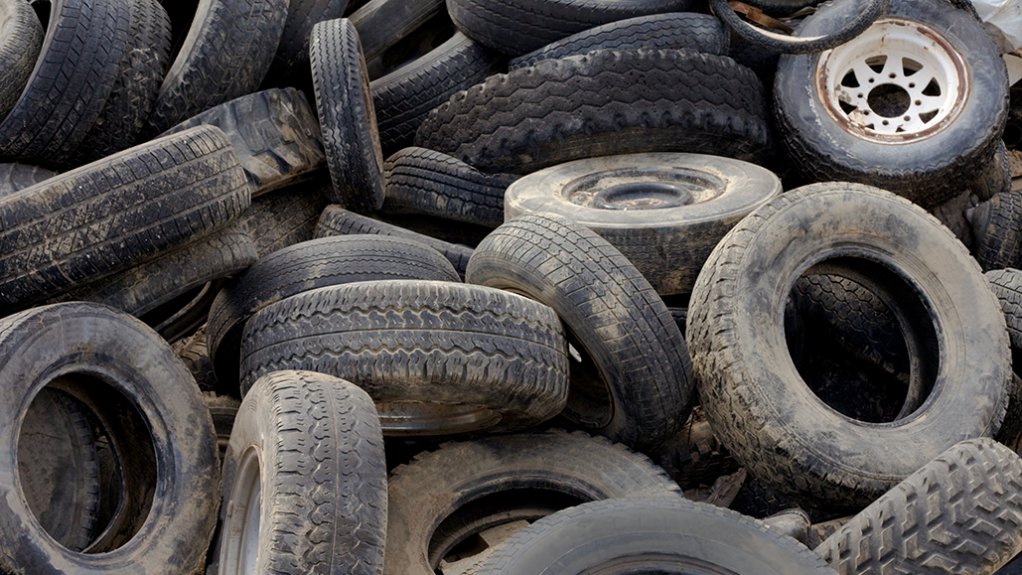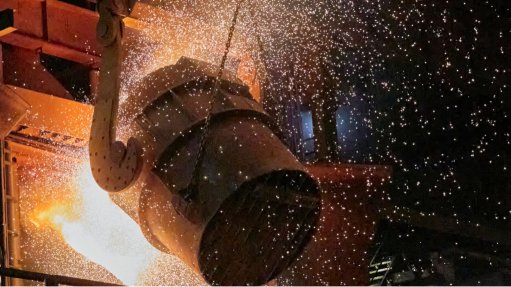Redisa initiates court action over Waste Tyre Management Plan


Waste tyres offer immense economic potential through processes for re-use in other industries, Redisa says
Nonprofit organisation the Recycling and Economic Development Initiative of South Africa (Redisa) has approached the Pretoria High Court to review and set aside government’s Industry Waste Tyre Management Plan (IWTMP).
Redisa says it has done this as a last measure and with the strong belief that the IWTMP poses a serious environmental and economic threat to South Africans.
“The plan infringes on the rights of South Africans to a conserved and protected environment, as enshrined in the Constitution. The plan was approved by the previous Forestry, Fisheries and the Environment Minister Barbara Creecy in March, but it is an unlawful, irrational, unreasonable and procedurally unfair administrative action,” the entity says in a statement.
“We have taken this step as last resort. Nobody wants to be part of expensive and protracted legal battles, but a continuation of the course this plan sets for the management of waste tyres would be disastrous,” comments CEO Hermann Erdmann.
Redisa says the IWTMP is “flawed” and incapable of meeting its required purpose.
“In the highly-unlikely event that it is successfully implemented, it would have destructive socioeconomic consequences,” the organisation posits.
It states that the plan sets unachievable and unrealistic targets, did not use the information and projections that were available, and lacks any budgetary detail, such as failing to usefully incorporate the Waste Tyre Levy.
Moreover, Redisa is of the view that the creation and approval of the plan was procedurally flawed.
It cites examples of this as including irregular publication of a notice and that important documents and information sources were not made available during the public participation process.
Redisa points out that using recycling to create new markets to absorb the new products, which is pivotal to a circular economy, does not feature in the IWTMP.
Waste tyres offer immense economic potential through processes for re-use in other industries. These include crumbing (producing rubber granulate to make a range of products such as paving bricks and insulation sheeting), waste-to-energy (as a fuel), and craft-based products (such as shoes, household items, etc.), the entity explains.
It warns that not using these recycling avenues poses a loss of opportunity and could have a detrimental effect to many in the waste industry.
“As a country, we produce at least 170 000 t/y of waste tyres. They end up in landfills, storage facilities, left all over our landscape and are often burned informally to get scrap steel, which is then sold. The toxins and pollutants that waste tyres release when improperly burned poison the air, water and soil,” Erdmann explains.
Storing waste tyres also poses a fire hazard, and waste tyre depots in South Africa are said to be overburdened, while the recycling of tyres is said to be mismanaged.
“If, in this context, a new and dysfunctional waste tyre plan is to be implemented, the consequences will be terrible. Regardless of legal processes, we wish to engage with all stakeholders who are interested in avoiding further ecological damage arising from waste tyres,” Erdmann explains.
Currently, waste tyre management is controlled by the Department of Forestry, Fisheries and the Environment's Waste Management Bureau.
From 2013 to 2017, Redisa managed waste tyres in South Africa. During this tenure, it built 22 tyre collection centres, employed over 3 000 people, created 226 small waste enterprises and offset 59 000 t of CO2 emissions, the entity highlights.
Article Enquiry
Email Article
Save Article
Feedback
To advertise email advertising@creamermedia.co.za or click here
Announcements
What's On
Subscribe to improve your user experience...
Option 1 (equivalent of R125 a month):
Receive a weekly copy of Creamer Media's Engineering News & Mining Weekly magazine
(print copy for those in South Africa and e-magazine for those outside of South Africa)
Receive daily email newsletters
Access to full search results
Access archive of magazine back copies
Access to Projects in Progress
Access to ONE Research Report of your choice in PDF format
Option 2 (equivalent of R375 a month):
All benefits from Option 1
PLUS
Access to Creamer Media's Research Channel Africa for ALL Research Reports, in PDF format, on various industrial and mining sectors
including Electricity; Water; Energy Transition; Hydrogen; Roads, Rail and Ports; Coal; Gold; Platinum; Battery Metals; etc.
Already a subscriber?
Forgotten your password?
Receive weekly copy of Creamer Media's Engineering News & Mining Weekly magazine (print copy for those in South Africa and e-magazine for those outside of South Africa)
➕
Recieve daily email newsletters
➕
Access to full search results
➕
Access archive of magazine back copies
➕
Access to Projects in Progress
➕
Access to ONE Research Report of your choice in PDF format
RESEARCH CHANNEL AFRICA
R4500 (equivalent of R375 a month)
SUBSCRIBEAll benefits from Option 1
➕
Access to Creamer Media's Research Channel Africa for ALL Research Reports on various industrial and mining sectors, in PDF format, including on:
Electricity
➕
Water
➕
Energy Transition
➕
Hydrogen
➕
Roads, Rail and Ports
➕
Coal
➕
Gold
➕
Platinum
➕
Battery Metals
➕
etc.
Receive all benefits from Option 1 or Option 2 delivered to numerous people at your company
➕
Multiple User names and Passwords for simultaneous log-ins
➕
Intranet integration access to all in your organisation



















